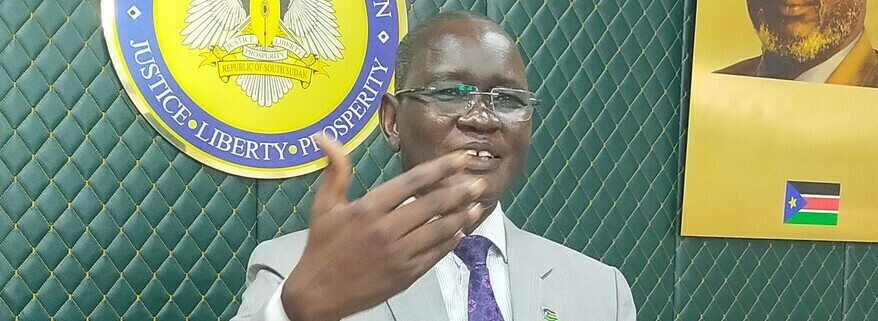The South Sudan National Council of Ministers on Friday passed the National Examination 2011 amendment Bill 2024.
Addressing reporters after the Cabinet meeting chaired by President Salva Kiir Mayardit, the Deputy Minister for Information, Jacob Maiju Korok, said Justice and Constitutional Affairs Minister Ruben Madol Arol, presented a memorandum on the National Examination Council Act 2011 that was amended to Bill 2023.
The purpose of the Bill is to amend the National Examination Council Act 2011 to incorporate offences and penalties that were not foreseen due to technology evolutions, and to confirm the National Examination Council Act 2011, with provisions of the revitalized agreement of the resolution of the conflict in South Sudan, he said.
Korok said the bill was passed with a unanimous vote.
Cabinet passes memo on investment with Belarus
The Deputy Minister of Information also said the Investment Minister, Dr Dheiu Mathok Ding, had presented a memo on the official visit of the South Sudan high-level delegation to the Republic of Belarus from 4th to 8th February, 2024.
The purpose of the visit was to establish bilateral relations between South Sudan and the Republic of Belarus on investments in agriculture, health and infrastructure, and to support South Sudan in capacity building and transformation technology.
This visit will attract foreign direct investment from Belarus to South Sudan and create communication channels between the two governments, he said. “So, after thorough deliberations, the report was passed.”
Cabinet passes National Youths Development Policy
Deputy Information Minister Jacob Maiju Korok further said the Cabinet had heard a presentation by the Youth and Sports Minister, Dr Joseph Geng Akec, on the National Youth Development Policy 2024.
The overall objective of the policy is to contribute to the attainment of a peaceful and prosperous South Sudan, where the young men and women fully developed their potential, without discrimination and violence and abuse, he said. In addition, the youth can freely participate in the economic, political and spiritual life to benefit from the country’s resources, he added.




